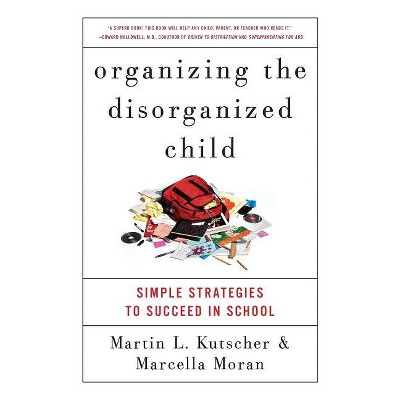Sponsored

Organizing Organic - by Michael A Haedicke (Hardcover)
In Stock
Sponsored
About this item
Highlights
- Stakeholders in the organic food movement agree that it has the potential to transform our food system, and yet there is little consensus about what this transformation should look like.
- About the Author: Michael A. Haedicke is Associate Professor of Sociology at Drake University.
- 240 Pages
- Social Science, Agriculture & Food
Description
About the Book
Drawing on extensive interviews and archival sources, Growing Markets, Cultivating Change tells a new story about the organic foods sector. Michael A. Haedicke shows how the development of this market was spurred on by attempts to reconcile diverging goals of expansion and social transformation.Book Synopsis
Stakeholders in the organic food movement agree that it has the potential to transform our food system, and yet there is little consensus about what this transformation should look like.
Tracing the history of the organic food sector, Michael A. Haedicke charts the development of two narratives that do more than simply polarize the organic debate, they give way to competing institutional logics. On the one hand, social activists contend that organics can break up the concentration of power that rests in the hands of a big, traditional agribusiness. Alternatively, professionals who are steeped in the culture of business emphasize the potential for market growth, for fostering better behemoths. Independent food store owners are then left to reconcile these ideas as they construct their professional identities and hone their business strategies.
Drawing on extensive interviews and unique archival sources, Haedicke looks at how these groups make sense of their everyday work. He pays particular attention to instances in which individuals overcome the conflicting narratives of industry transformation and market expansion by creating new cultural concepts and organizational forms. At once an account of the sector's development and an analysis of individual choices within it, Organizing Organic provides a nuanced account of the way the organic movement continues to negotiate ethical values and economic productivity.
Review Quotes
"A fascinating book. Although the organic food sector emerged from a call to transform agribusiness, Haedicke intriguingly documents how this movement was itself intertwined with expansionary, market-building activities. Using an institutional logics approach, Haedicke masterfully traces a fundamental tension that fueled both conflict and compromise as organics went mainstream."--Michael Lounsbury "University of Alberta"
"After so many books taking a political economy approach to agriculture or a cultural history approach to food, it's rewarding to see the organic food sector through fresh conceptual eyes."--E. Melanie DuPuis "American Journal of Sociology "
"Haedicke covers an impressive breadth of theoretical concepts, provides lucid explanations of each one, and uses them adeptly to explain the market's emergence and growth....Organizing Organic is of tremendous value for its rich and compelling illustrations of important and wide-ranging ideas. It is a worthwhile and engaging read not only for those interested in cultural and ethical markets but also for any organizational theorist interested in processes of social change."--Mary Besharov "Organization Studies"
"Haedicke's work provides a nuanced examination of the organic sector's compromises and contradictions. Drawing from a broad swath of empirical data, the reader learns why something like an 'organic Twinkie' can be seen as both a market accomplishment and a symbol of Big Organics' moral failings. This book enriches our understanding of the cultural and economic evolution of organic markets, while shedding new light on old tensions of movements versus markets."--Josée Johnston "University of Toronto"
"In Organizing Organic: Conflict and Compromise in an Emerging Market, Michael Haedicke provides a well-written, informative historical overview and analysis of the development of the organic food industry....This analysis, rooted in organizational theory, is sophisticated and original....[G]raduate students and more advanced scholars interested in organizational theory as applied to this important social and economic development will find great value in Organizing Organic."--Brian K. Obach "Contemporary Sociology"
"Michael Haedicke deftly tells the story of the organic food industry, which spans farming, co-ops, and the trendy for-profit grocers that are taking over what was once an idealistic niche. Rich with detail but also broad insights, Haedicke skillfully integrates the literatures on food studies, social movements, organizations, and economic sociology. A marvelous contribution from an important new voice."--Tim Hallett "Indiana University"
"Michael Haedicke's book, Organizing Organic: Conflict and Compromise in an Emerging Market, is a welcome contribution to the study of the organic sector, which has seen tremendous growth since the late twentieth century...Haedicke has persuasively argued for the importance of emotional and cultural elements of institutional logics to enable compromise within a sector characterized by conflict."--Joshua L. Carreiro "Social Forces"
"Michael Haedicke's superb analysis of the organic foods sector complicates popular accounts of good guy farmers and activists versus bad guy grocery conglomerates. He demonstrates how social and economic factors compel members from both sides of the movement to navigate their divergent understandings of purity and profit. This book will be of great interest to social scientists and people working in the organics field alike."--Amy Binder "Amy Binder, University of California-San Diego and author of Becoming Right: How Campuses Shape Young Conservatives"
"Working at the intersection of social movements and organizational theory, Haedicke has fashioned a rich, innovative portrait of the history and contemporary dynamics of the organic sector. Anyone interested in organic farming or the dynamics of strategic action fields will want to read this book."--Doug McAdam "Stanford University"
About the Author
Michael A. Haedicke is Associate Professor of Sociology at Drake University.










